At the invitation of Hong Kong Universities and Mr. Zhan Hongliang, President of the Hong Kong Zhejiang Fellow Association Federation, Professor Le Chuanyong, President and Deputy Secretary of the CPC TU Committee, led a delegation to Hong Kong from October 22 to 25. During the visit, the delegation successively visited the Chinese University of Hong Kong (CUHK) and the Hang Seng University of Hong Kong (HSUHK), and paid courtesy calls to Zhejiang community representatives in Hong Kong. The visit was intensive and fruitful, achieving the expected goals, and the delegation has returned to TU.
At HSUHK, the four-member TU delegation was warmly received by the university management, including Professor Simon Ho Shun-man, President; Dr John Leung Wai-keung, Associate Vice-President; Professor Gavin Chau, Co-Director of the Centre for Quality Standard and Management; Dr Brian Chan, Co-President of Great Bay Area Education Resources Centre; and Professor Sam Seung-ho Park, Dean of the School of Business. The two sides held in-depth discussions on three core areas: joint academic programs, faculty development, and talent cultivation.
Regarding joint academic programs, preliminary agreements were reached on collaboration in “2+2” and “3+1” undergraduate joint training programs as well as the Master of Science in Digital Innovation and Quality Leadership. Detailed consultations were conducted on key issues, including faculty staffing standards, talent cultivation plans, curriculum alignment, admission procedures, and tuition collection policies. In terms of faculty development, discussions centered on strategies for attracting high-level talent and service support mechanisms, with a clear plan to advance faculty exchange programs, sending TU teachers to HSUHK for academic visits and exchanges. On talent cultivation, the two sides exchanged ideas on advancing undergraduate innovation and entrepreneurship education, establishing student exchange and credit recognition mechanisms, and optimizing student support systems. In addition, discussions covered international campus development, planning for the entrepreneur training center, and co-establishment of interdisciplinary laboratories.
During the visit, the delegation also toured HSUHK’s library, auditorium, and smart classrooms, gaining a deep understanding of the university’s teaching facilities, educational conditions, and campus culture.
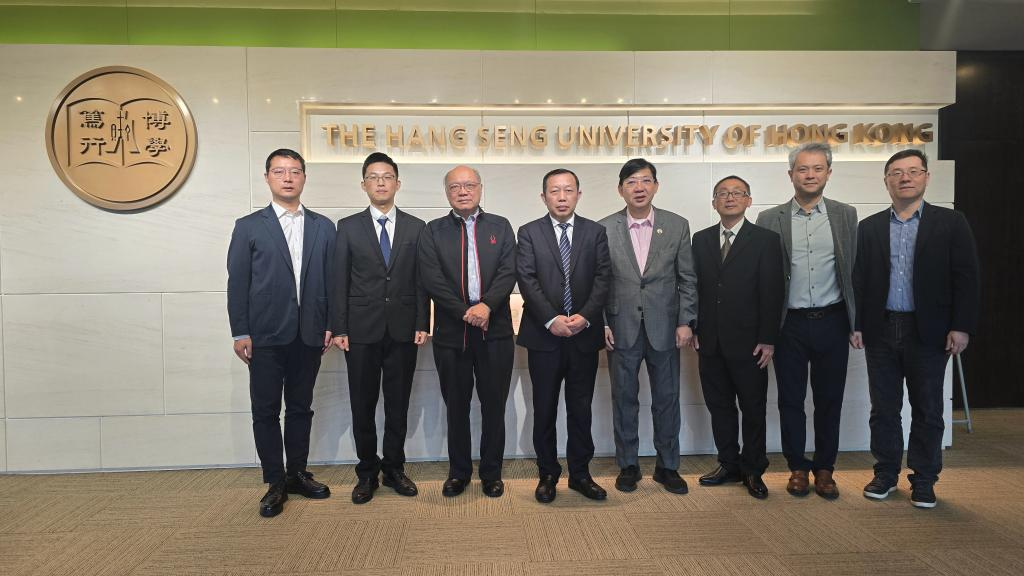
Group photo at the Hang Seng University of Hong Kong

The delegation visiting HSUHK’s auditorium
At CUHK, the delegation first paid a courtesy visit to Mr. Ambrose King Yeo-Chi, former president of the university. Mr. King, a native of Tiantai County, Zhejiang Province, began teaching at CUHK in 1970 and served as the university’s president from 2002 to 2004. During the meeting, he expressed great interest in the development of his hometown and the construction of Taizhou University, stating clearly that he would actively facilitate cooperation between CUHK and TU, strengthen the friendship between the two universities, and provide full support for TU’s development.
Subsequently, the delegation met with Professor Leung Yiu-kin Freedom, Head of Shaw College, and Ms. Wing Wong, Director of the International Office. The two sides reached preliminary consensus on establishing a friendly cooperation relationship between Shaw College and TU. Discussions focused on two key areas: the recruitment of high-level talent and the development of a “dual-qualified” faculty team. They also explored cooperation projects including faculty exchange for outstanding young talent, joint undergraduate and graduate programs of various durations, and learned from CUHK’s advanced experience and management models in industry–education integration and university–enterprise cooperation, laying a solid foundation for future collaborative academic programs in engineering and related fields.
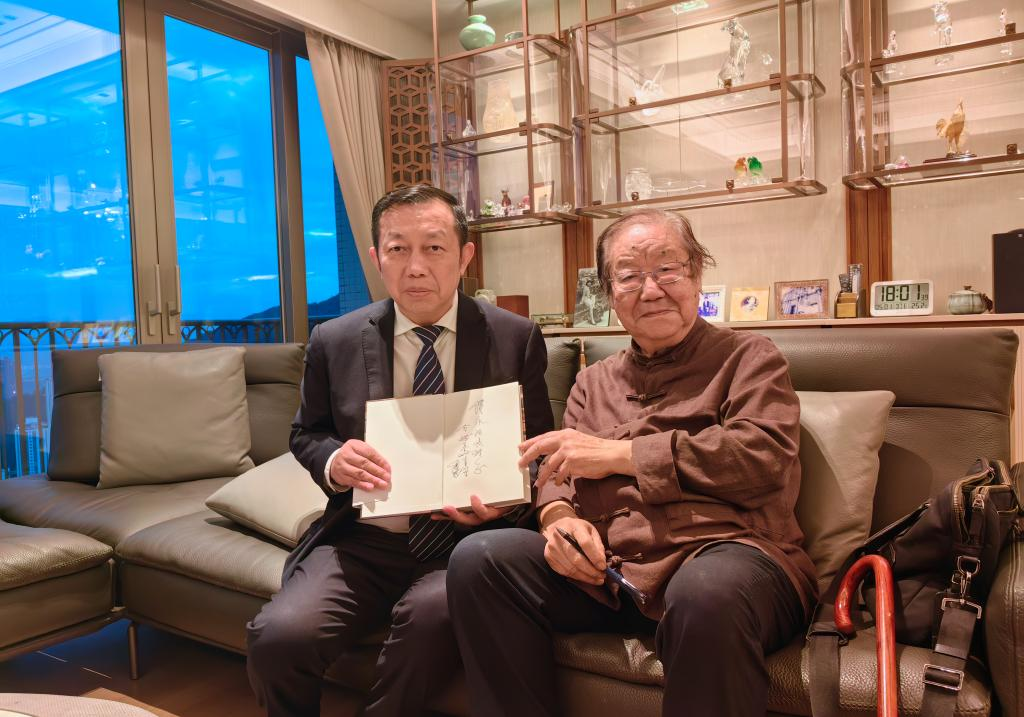
Le Chuanyong paying a courtesy visit to Mr. Ambrose King Yeo-Chi, CUHK’s former president
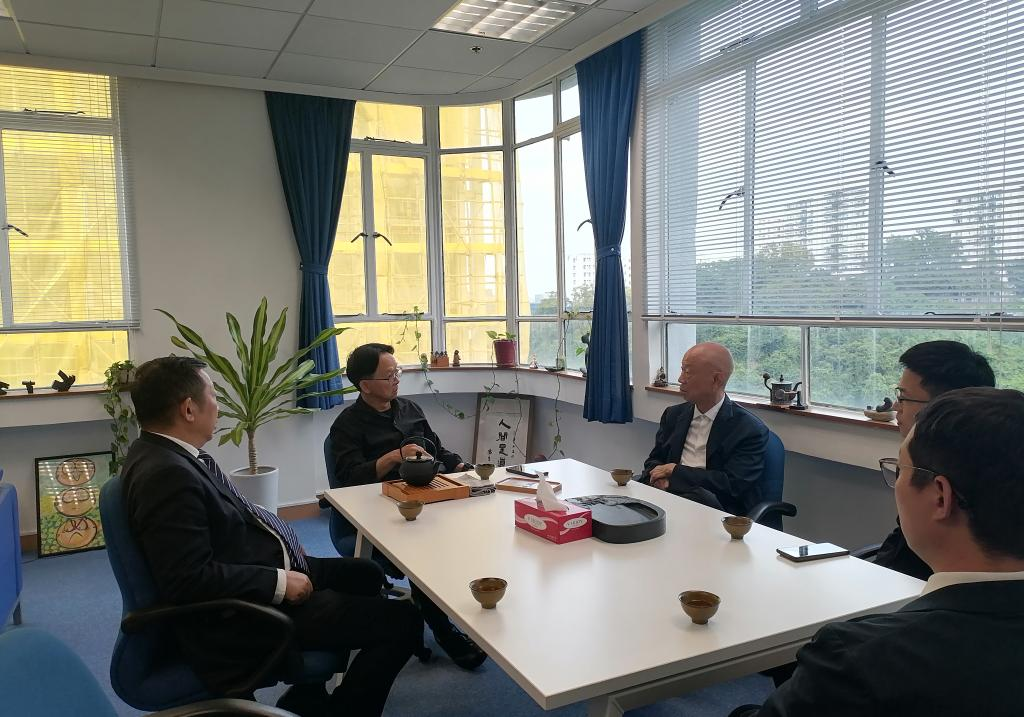
The delegation exchanging views at Shaw College, CUHK
During the visit to Hong Kong, Le Chuanyong and his delegation also paid courtesy visits to Mr. Zhan Yaoliang, Permanent Honorary President of the Hong Kong Zhejiang Fellow Association Federation, and Mr. Zhan Hongliang, the current President. They toured the offices of the Hong Kong Zhejiang Fellow Association Federation and the Hong Kong Taizhou Fellow Association, and through discussions gained an in-depth understanding of the characteristics and development trends of Hong Kong’s higher education system. The two sides reached preliminary consensus on leveraging the Fellow Associations as a platform to attract high-level talent from Hong Kong and enhance TU’s internationalization efforts, aiming to secure broader support from the associations for the university’s development.
In addition, the delegation met with Zhejiang community representatives in Hong Kong, including Mr. Ye Tai-hai, Chairman of Ming Kee Manufacturing Ltd., Hong Kong; Mr. Jiang Xinghao, Chairman of Hong Kong Jiangxing International Co., Ltd.; and Mr. Ying Yuming of Bud Consulting Ltd. They provided a detailed introduction to TU’s recent achievements and future plans, sought the community’s support for the development of higher education in their hometown, and explored collaboration opportunities such as targeted donations, establishment of dedicated educational funds, and participation in joint academic programs, thereby pooling social resources to support the university’s high-quality development.
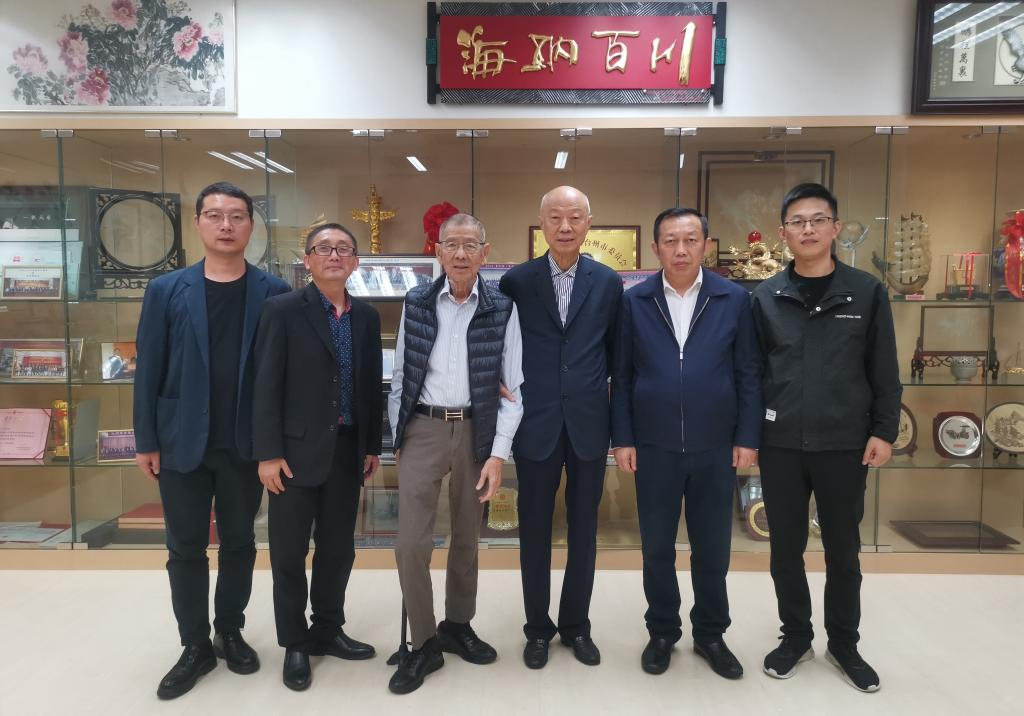
Group photo with Mr. Zhan Yaoliang, representative of the Hong Kong Taizhou Fellow Association
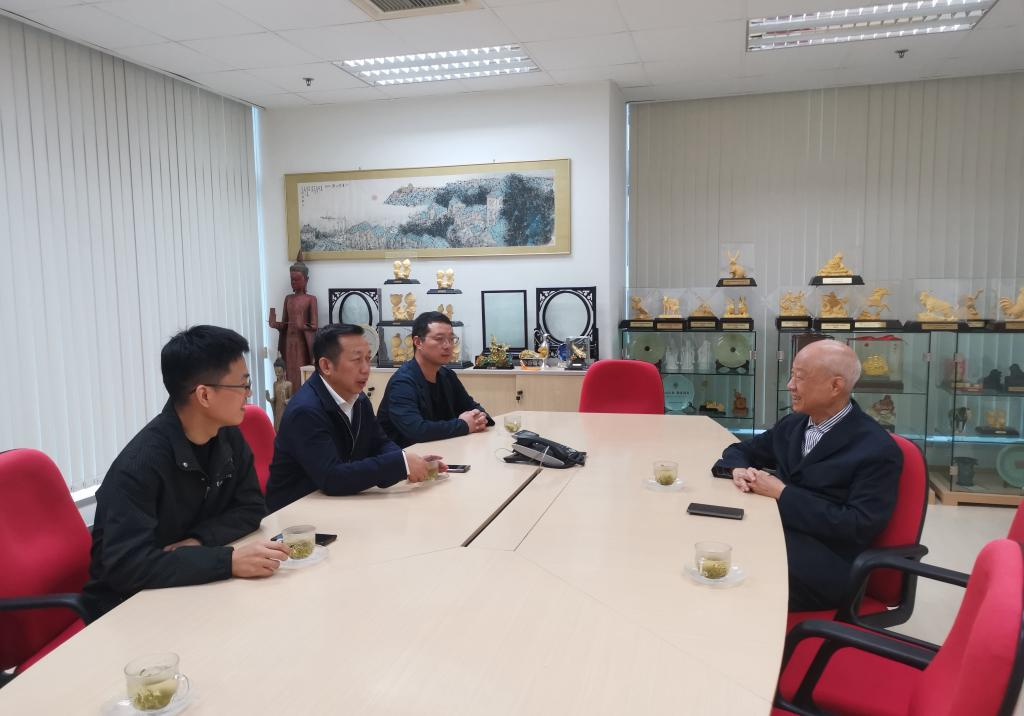
The delegation exchanging views with Mr. Zhan Yaoliang at the Hong Kong Taizhou Fellow Association

Group photo at the Hong Kong Zhejiang Fellow Association Federation

The delegation exchanging views with Mr. Zhan Hongliang, President of the Hong Kong Zhejiang Fellow Association Federation
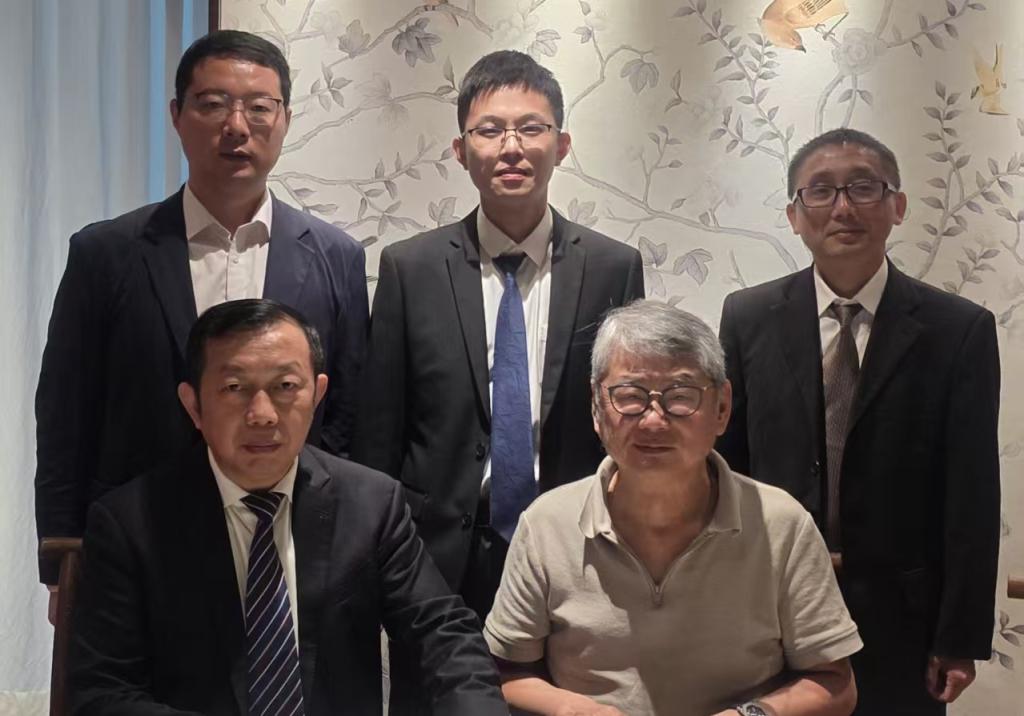
The delegation paying a courtesy visit to Mr. Ye Tai-hai, Chairman of Ming Kee Manufacturing Ltd., Hong Kong
The visit to Hong Kong not only allowed the delegation to systematically learn from the advanced educational practices, leading educational philosophies, and rigorous academic standards of Hong Kong universities, but also marked a new stage in TU’s cooperation and exchanges with Hong Kong institutions, laying a solid foundation for the university’s future international collaborative programs. At the same time, by strengthening ties with Zhejiang community representatives in Hong Kong, the university further consolidated social support, injecting new momentum into its goal of upgrading to university status and achieving high-quality development.